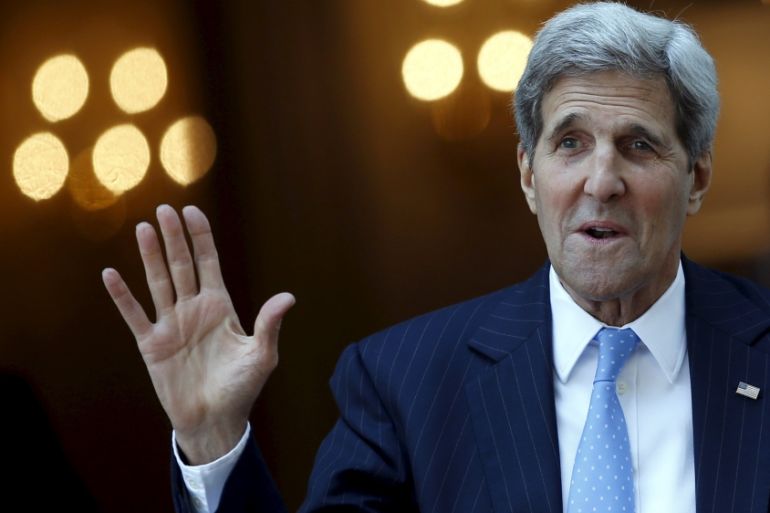Iran and world powers inch towards nuclear deal
Iran and West say historic deal could be signed by Monday as John Kerry says “major issues” remain to be resolved.

Iran and six world powers are close to signing a historic nuclear deal that will bring sanctions relief in exchange for curbs on Tehran’s atomic programme, officials say.
After more than two weeks of negotiations in Vienna, Iranian and Western officials said on Sunday that an agreement could be ready on Monday, the self-imposed deadline for clinching the deal, though that could be extended again.
Keep reading
list of 4 itemsWho will be Iran’s next president? | Start Here
Oil slumps two percent on possible return of Iranian supply
Border security a common concern for Pakistan and Iran: Rouhani
“We still have got work to do tomorrow,” Iranian Foreign Minister Mohammad Javad Zarif told reporters on Sunday from his hotel balcony. “No deal today [Sunday].”
US Secretary of State John Kerry has cautioned that “major issues” remain to be resolved, and comments from both senior Republican and Democrat Senators on Sunday suggested that any final deal would also face tough scrutiny in the US Congress.
Alireza Miryousefi, a spokesman for the Iranian delegation, said on Twitter that the draft agreement Iran and the powers – the US, France, Britain, Germany, Russia and China – were working on was “a 100-page document”.
Iranian President Hassan Rouhani said on Sunday further measures were still needed to overcome the remaining obstacles in the Vienna negotiations, ISNA news agency reported.
“It might seem we have reached the top of the mountain. But no, there are still steps needed to be taken,” ISNA quoted him as saying. “Even if we fail … we have performed our duty.”
A senior Iranian official said 99 percent of the issues had been resolved, adding: “With political will we can finish the work late tonight and announce it tomorrow.”
Arms embargo
Among the biggest sticking points in the past week has been Iran’s insistence that a United Nations Security Council arms embargo and ban on its ballistic missile programme dating from 2006 be lifted immediately if an agreement is reached.
Russia, which sells weapons to Iran, has publicly supported Tehran on the issue.
Other problematic issues in the talks are access for inspectors to military sites in Iran, answers from Tehran over past activity and the overall speed of sanctions relief.
Kerry and Zarif have met nearly every day since Kerry arrived in Vienna more than two weeks ago for what was intended to be the final phase in a negotiation process that began with an interim nuclear deal clinched in November 2013.